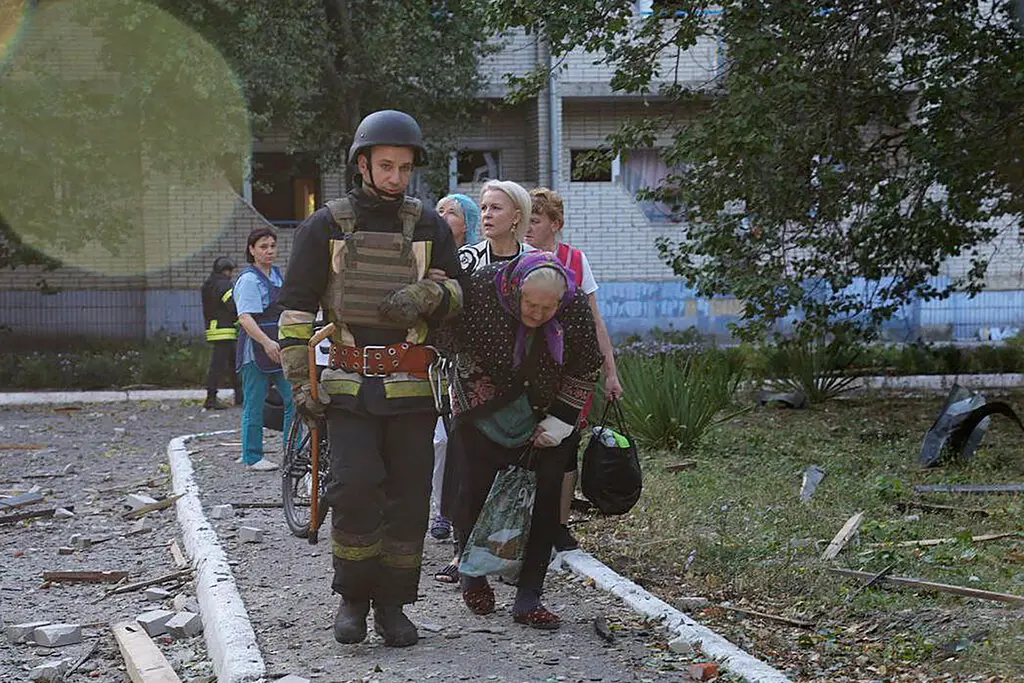The Devastating Impact of War on Clinical Care: A Case Study from Sumy, Ukraine
Recent events in Sumy, Ukraine, have underscored the severe consequences of war on clinical care, particularly for vulnerable populations such as the elderly. In March 2024, a Russian-guided bomb struck a nursing home in the city, killing at least one person and injuring many others. This tragic incident illustrates the broader challenges healthcare systems face in conflict zones, where providing adequate medical care becomes nearly impossible.
Nursing Homes on the Front Lines of Conflict
Nursing homes, which house aging residents often with chronic health issues, are particularly vulnerable in war zones. In the Sumy attack, many of the residents were either bedridden or wheelchair-bound, making evacuation incredibly difficult. For healthcare workers on-site, the pressure is immense—balancing the safety of staff and residents while trying to maintain clinical care under life-threatening conditions.
The destruction of critical healthcare infrastructure, such as hospitals and long-term care facilities, compounds the issue. In Sumy, local utilities had already been devastated by ongoing Russian airstrikes, leaving the area without water or electricity on the day of the attack. These resources are essential for day-to-day clinical operations, making it almost impossible to provide even basic care in such conditions.
Strain on Healthcare Professionals
War drastically alters the landscape for clinical care providers. In conflict zones, medical personnel often face overwhelming patient loads with limited resources. After the bombing in Sumy, emergency services rushed nine seriously injured patients to already overwhelmed hospitals. Healthcare workers are not only required to manage severe trauma cases but also continue caring for residents with existing health issues, all while under extreme psychological stress.
For nurses, doctors, and emergency responders, the emotional toll is substantial. Working in high-risk environments where medical facilities can be targeted makes the daily task of patient care physically and mentally exhausting. The constant fear of bombings, combined with the ethical dilemma of having to prioritize certain patients, further exacerbates their distress.
Long-Term Effects of Conflict on Elderly Care
The long-term clinical consequences for elderly patients in war zones are dire. The bombing of nursing homes and other care facilities interrupts critical medical treatment for chronic conditions like diabetes, heart disease, and Alzheimer’s. As clinical care becomes inconsistent or unavailable, patients’ health deteriorates rapidly.
Even for those not directly injured in attacks, the stress of living in a war-torn environment can worsen existing conditions. Psychological trauma, isolation, and disruptions to routine care can lead to a sharp decline in both mental and physical health. Without access to proper medication, nutrition, and medical attention, many elderly residents face a bleak future in regions like Sumy.
Protecting Healthcare in Conflict Zones
Incidents like the Sumy nursing home bombing bring attention to the urgent need for protecting healthcare facilities in war zones. Under international law, hospitals, clinics, and long-term care centers should be treated as neutral spaces, but in practice, they are often targeted or become collateral damage.
Global organizations must step up efforts to safeguard medical workers and facilities. Humanitarian support should include bolstering healthcare infrastructure, providing medical supplies, and ensuring emergency evacuations are possible when necessary. Without stronger protections, healthcare systems in conflict areas will continue to falter, leaving vulnerable populations without the care they desperately need.
Conclusion
The attack on Sumy’s nursing home illustrates the tragic impact of war on clinical care. In the midst of conflict, providing basic healthcare becomes a monumental challenge. The elderly and medically fragile, often reliant on consistent care, are especially vulnerable to the disruptions caused by war. As the international community watches the ongoing conflict in Ukraine, there must be an increased focus on ensuring that healthcare systems can withstand the devastating effects of war, and that facilities like nursing homes are shielded from future violence.


